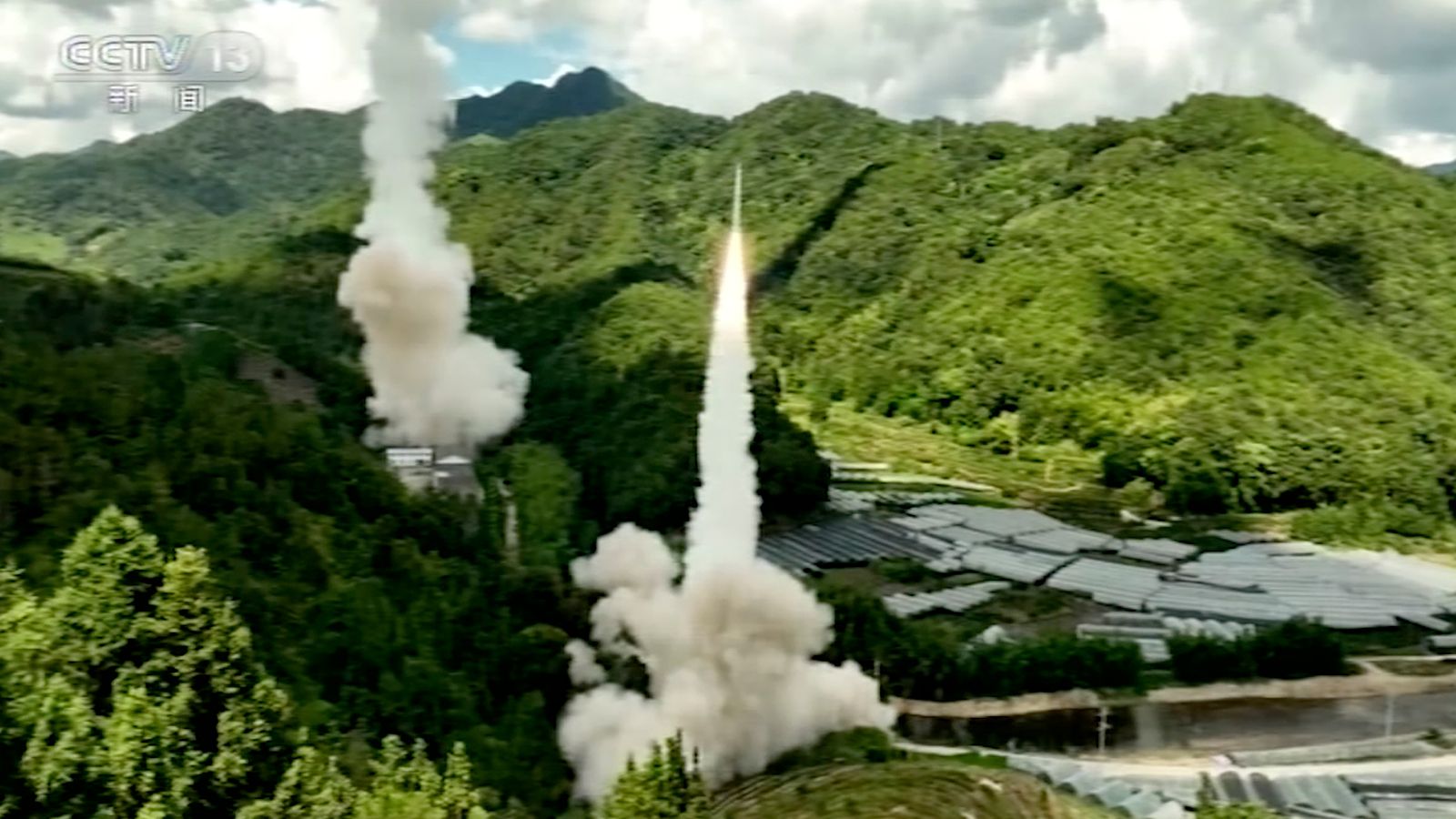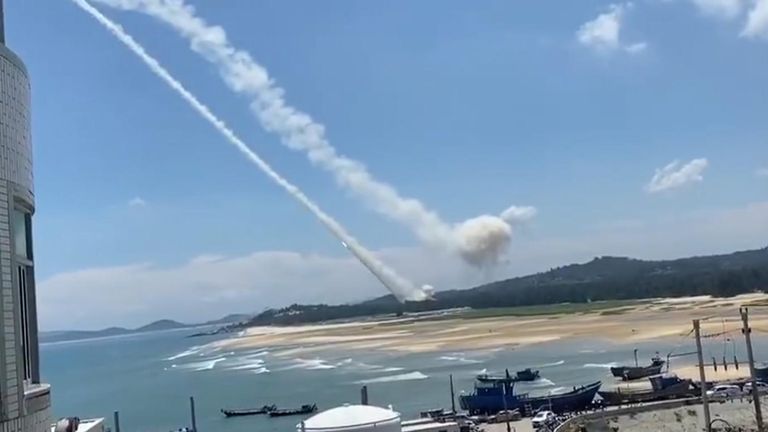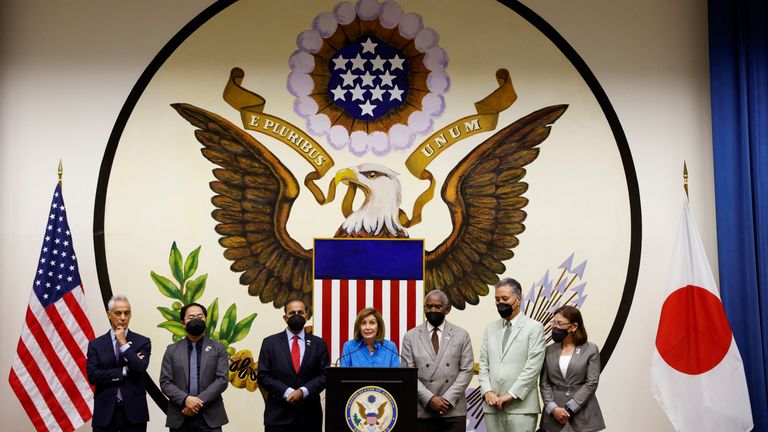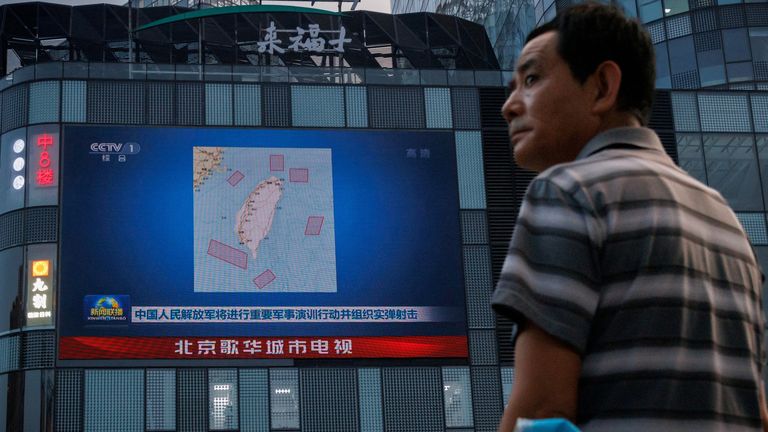Taiwan’s premier has condemned China as the “evil neighbour next door” after its military began live firing drills around the island.
Su Tseng-chang told reporters in the capital Taipei he believed China was arbitrarily destroying the Taiwan Strait – the world’s most frequently used waterway – with its military exercises, and its actions were being condemned by other neighbouring countries and the wider world.
Beijing admits there has been live firing but that it was “precision missile strikes” as part of exercises by its navy, air force and other departments in six zones surrounding the island.
Japan says it was forced to protest to China after five of the missiles landed inside its Exclusive Economic Zone.
The drills were prompted by a visit to the island by US House Speaker Nancy Pelosi this week, and are intended to demonstrate China’s response to moves by the self-governing island to solidify its de facto independence from Chinese rule.
Taiwan has put its military on alert and staged civil defence drills, while the US has numerous naval assets in the area.
Read more:
Analysis – Adam Boulton on the rising rhetoric stirred up by Nancy Pelosi’s visit
In a speech in Tokyo, following her trip to Taiwan, Mrs Pelosi said China would not isolate Taiwan by preventing US officials from travelling there and that America’s commitment to democracy in Taiwan “remains ironclad”.
Her decision to become the most senior American politician to travel to Taiwan since the 1990s infuriated China – and has also attracted some criticism closer to home. US President Joe Biden advised against her trip, while US allies in the Asia-Pacific region have not rushed to praise her 19-hour flying visit as part of a regional tour.
While in Tokyo, Mrs Pelosi addressed the diplomatic storm caused by the visit – with five members of the US Congress – to Taipei.
“We have said from the start that our representation here is not about changing the status quo in Taiwan or the region,” she said.
Beijing has warned the visit would undermine China-US relations, and the foreign ministry said it seriously violated China’s sovereignty and territorial integrity.
In a statement issued just after her arrival in Taipei, China’s foreign ministry said it had lodged a strong protest with the US.
Read more:
Badly timed Taiwan visit may have the US and China quietly walking into a crisis
An island of 23 million people, 112 miles off the coast of China, Taiwan declares itself an independent, democratic country with its own leader, constitution, political system and military.
But with territorial claims to the island that date back all the way to 229AD, the Communist Party in Beijing sees it as a breakaway province of China that will eventually come back under its control – by force if necessary.
This is known as the One China principle – a diplomatic acknowledgment that Beijing is the only legitimate ruling power in China.
Technically, the US subscribes to a version of that – a One China policy – and therefore does not recognise Taiwan as an independent state, in line with the United Nations. But it still maintains unofficial ties and champions the island’s commitment to democracy.




